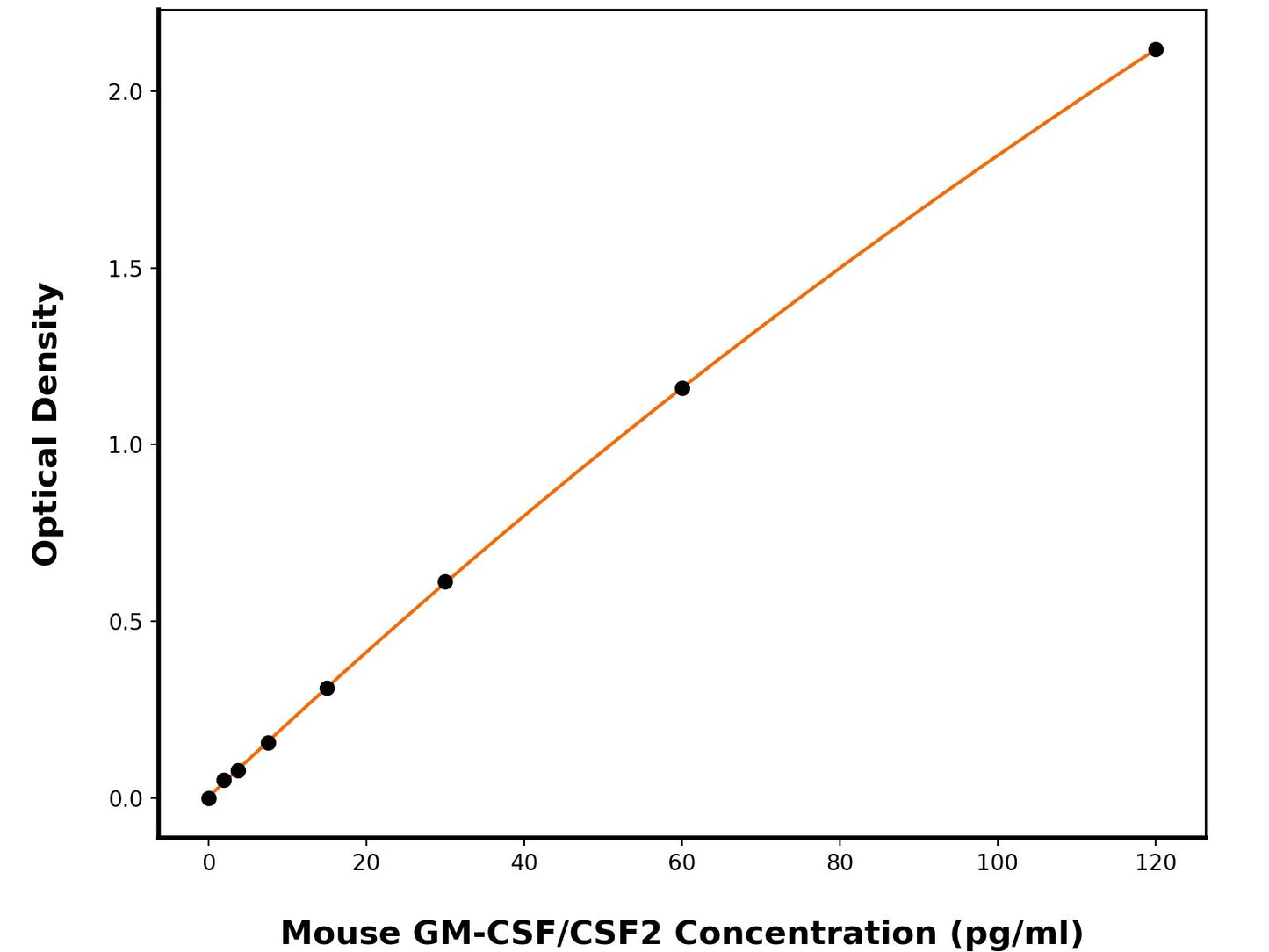1
/
of
1
Mouse Granulocyte-Macrophage Colony-Stimulating Factor (CSF2) ELISA Kit
Mouse Granulocyte-Macrophage Colony-Stimulating Factor (CSF2) ELISA Kit
This ELISA kit is designed to detect Mouse Granulocyte-Macrophage Colony-Stimulating Factor (Mouse CSF2). The assay plate has been pre-coated with mouse anti-Mouse GM-CSF monoclonal antibody. When the sample containing GM-CSF is added to the plate, it binds to the antibodies coated on the wells. Then, a horseradish peroxidase conjugated mouse anti-Mouse GM-CSF Antibody is added to the wells and binds to GM-CSF in the sample. After washing the wells, substrate solutions are added, and the color intensity is directly proportional to the amount of Mouse GM-CSF present. The reaction is stopped by adding an acidic stop solution, and the absorbance is measured at 450 nm.
Catalog No:
BPE339
Regular price
$624.00 USD
Regular price
$480.00 USD
Sale price
$624.00 USD
Unit price
/
per
2 weeks
Couldn't load pickup availability
Product Details
Species Reactivity
Mouse
Sensitivity
0.59 pg/mL
Detection Range
1.88-120 pg/mL
Sample Type
Serum, plasma, cell culture supernates
Incubation(s)
3.5 hour(s)
Research Areas
Immunology, Neuroscience
Background
Granulocyte-macrophage colony-stimulating factor (GM-CSF) is one of an array of cytokines with pivotal roles in embryo implantation and subsequent development. Several cell lineages in the reproductive tract and gestational tissues synthesise GM-CSF under direction by ovarian steroid hormones and signalling agents originating in male seminal fluid and the conceptus. The pre-implantation embryo, invading placental trophoblast cells and the abundant populations of leukocytes controlling maternal immune tolerance are all subject to GM-CSF regulation. GM-CSF stimulates the differentiation of hematopoietic progenitors to monocytes and neutrophils, and reduces the risk for febrile neutropenia in cancer patients. GM-CSF also has been shown to induce the differentiation of myeloid dendritic cells (DCs) that promote the development of T-helper type 1 (cellular) immune responses in cognate T cells. The active form of the protein is found extracellularly as a homodimer, and the encoding gene is localized to a related gene cluster at chromosome region 5q31 which is known to be associated with 5q-syndrome and acute myelogenous leukemia. As a part of the immune/inflammatory cascade, GM-CSF promotes Th1 biased immune response, angiogenesis, allergic inflammation, and the development of autoimmunity, and thus worthy of consideration for therapeutic target. GM-CSF has been utilized in the clinical management of multiple disease processes. Most recently, GM-CSF has been incorporated into the treatment of malignancies as a sole therapy, as well as a vaccine adjuvant. While the benefits of GM-CSF in this arena have been promising, recent reports have suggested the potential for GM-CSF to induce immune suppression and, thus, negatively impact outcomes in the management of cancer patients. GM-CSF deficiency in pregnancy adversely impacts fetal and placental development, as well as progeny viability and growth after birth, highlighting this cytokine as a central maternal determinant of pregnancy outcome with clinical relevance in human fertility. Cancer Immunotherapy Immune Checkpoint Immunotherapy Targeted Therapy
Shipping Condition
Shipped on cold gel packs.
Storage Condition and Shelf Life
This product can be stored at 2-8C.
Analyte
Granulocyte-macrophage colony-stimulating factor
Regulatory Status
For Research Use Only

